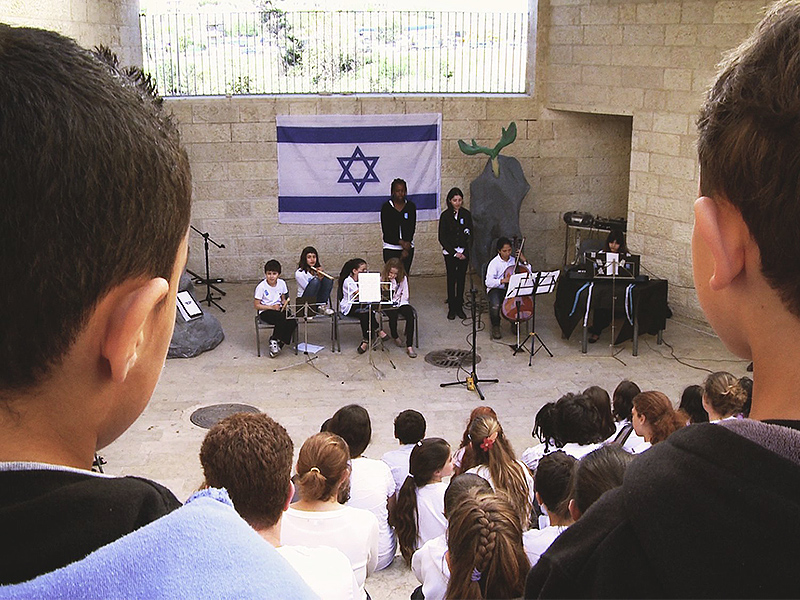Documentarian Danae Elon has a very complicated relationship with Israel. She has fond memories of her childhood in Jerusalem. When away from the country, she misses the vast desert just outside of the city. At the same time, she disagrees with many of the policies of the Israeli government, believing their actions do not represent her Jewish values.
“I was, like many Israelis, suffocated in my own environment,” she says of her adolescence there.
At 20, after completing her army service, Elon left Israel for film school at New York University. Regardless, the creative path she walked along only led her back to Jerusalem.
Her newest film, P.S. Jerusalem, chronicles a more than three-year period when Elon moved back to the Holy City, with her husband, two sons and a baby on the way.
After bids in Haifa, southern Israel and Toronto, P.S. Jerusalem will screen at the Montreal International Documentary Festival (RIDM) on Nov. 17 and 21. Elon, who now lives with her family in Montreal, will be in attendance.
Throughout the doc, Elon points her camera at her eldest boy, Tristan. In Jerusalem, he attended the bilingual Hand in Hand school, where Jewish and Arab children study together.
In P.S. Jerusalem, Tristan groans when his mother points her camera his way. Nevertheless, many of his responses to things such as learning Arabic and pondering over whether or not he is Jewish are spontaneous and fascinating to watch.
“I want my kids to have an identity that is clear,” Elon tells The CJN, “and be able to understand their sense of history, of who they are and where they come from.”
While the film features the director asking Tristan and younger brother Andrei a lot of questions, she hoped the experience would provide answers to the things her children would ask her.
In one scene, Tristan learns about the “Nakba,” the displacement of Palestinians in 1948. Elon narrates that nobody spoke about that when she was a student.
Elon says the decision to film her sons was not easy, and this caused some tension between the family members.
“You basically have to speak to them in a certain way so they understand you as a person and as a mom, and then ultimately you will manage to extract the information [you want],” she says.
“Just ask the questions so they can be curious. [Tristan] doesn’t know what Israel and Palestine is. But he does know that his friend from school lives very far in the desert.”
The director’s move back to Israel went against the wishes of her father, outspoken Israeli writer Amos Elon, who died in 2009. Amos moved away from Jerusalem with his wife in 2004 to live the rest of his days in Italy.
Amos pleaded with his daughter not to return. However, Elon says she never quite felt at home anywhere else.
Growing up with a distinguished author in her home, as well as one that frequently criticized Israel, meant that Elon was exposed to a multitude of political opinions.
“My father was a very inquisitive man,” she says. “We were always on. We always had to think about what we were saying and why we were saying it.”
Elon’s third child, born in Jerusalem a few months after the family’s arrival, was named Amos, in his late grandfather’s honour.
P.S. Jerusalem explores Israel in its many moods, from peaceful Memorial Day ceremonies to encounters with xenophobic men on the city streets.
The doc was filmed with a Canadian crew, under the supervision of Montreal producer Paul Cadieux. Elon credits the extra Canadian funding as a vital factor in making her film. She is now working with Cadieux on another Jerusalem-set doc.
Elon says she is intrigued about speaking with the audience after the RIDM screenings. The film already stirred up some controversy in Toronto, when some criticized the film for being too pro-Palestinian. In comparison, she says that festival audiences in Israel were more receptive.
The director says that people who attack her film for its politics miss the point.
“We should be able to look at stories and… see films, and not judge them on political terms,” Elon says. “I think you can actually experience it profoundly, even if you don’t agree with it politically.”
